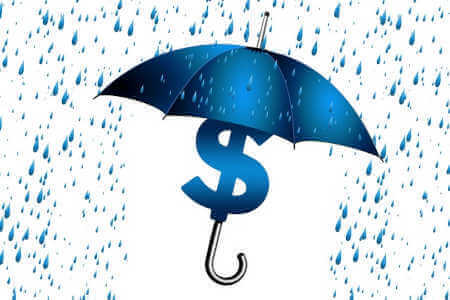Good Credit Score
What is a Good Credit Score?
Good credit is valuable. How much credit you have, your credit rating and how you use it can make a major difference in your life. It can affect where you live and even where you work, because your credit record may be considered by prospective employers. That is why you need to understand how credit is awarded or denied and what you can do if you have negative entries in your credit report. Your rights and what you can do if you are treated unfairly.
Question: Why is good credit important?
Answer: Good credit is important because it makes it more likely that you can get a new loan in the future when you want to make a major purchase, such as a car or a home. When you have a good credit record, lenders feel more confident that you will be willing and able to pay back the new loan.
Good credit allows you to obtain loans and credit cards with the best interest rates. Having a good credit history is also important if you want to rent an apartment or get insurance coverage, a cell phone, job, mortgage and more. Landlords, insurance companies and employers can also check your credit report.
Top 5 Factors That Determine Credit Scores
In trying to figure out what helps your FICO® Score the most, the first step is to look at how your FICO Scores are calculated. FICO® Scores are calculated using the five categories listed below:
- 1. Payment History: 35%
- 2. Amounts Owed: 30%
- 3. Length of Credit History: 15%
- 4. Credit Mix: 10%
- 5. New Credit: 10%
The one thing people with good/high credit scores have in common is a demonstrated healthy credit behaviors over time. To achieve high FICO® Scores, here are a few tips you can follow:
Pay your bills on time – Approximately 35% of a FICO® Score is based on payment history. Delinquent payments and collections on your credit accounts will have a major negative impact on your FICO® Scores. The FICO® Score evaluates if there are any missed payments being reported. Staying current and paying bills on time demonstrate lower credit risk.
Did you know ..
About 98% of FICO High Achievers have no missed payments at all. But of those who do, the missed payment happened nearly 4 years ago, on average.
Avoid collections – Stay current on your credit accounts. If you’re behind on payments, get current and stay current. Avoid collections by all means. Paying off a collection account will not remove it from your credit report. It will stay on your report for 7 years.
Amounts Owed - Approximately 30% of a FICO® Score is based on the amount owed on all accounts. High credit utilization rates will have a major impact on your FICO® Scores. The following are taken into consideration:
The amount owed on all accounts.
Number of accounts with a balance.
Total credit line used on revolving accounts.
Amount still owed on installment loans, compared with the original loan amounts.
The bottom-line - Keep balances low and be careful about using a large percentage of your available credit.
New Credit - Each time you apply for credit, a credit inquiry is added to your credit report. When your credit report shows relatively few or no recent credit inquiries, it indicates that you are not actively looking for credit. People who are actively seeking credit pose more of a risk to lenders than those who are not. Approximately 10% of a FICO® Score is based on this information.
If you must apply for new credit, do your rate shopping within a short period of time. FICO® Scores distinguish between a search for a single loan and a search for a mortgage, student, or auto loan, in part by the length of time over which the inquiries occur.
** About 70% of FICO High Achievers did not apply for credit in the past year.
Length of Credit History - A longer credit history will increase your FICO® Score. FICO® Scores measure the age of the oldest account and the average age of all accounts being reported. Overall, having a relatively long credit history and not opening many new accounts is reflective of lower risk. Approximately 15% of a FICO® Score is based on the length of your credit history.
** Most FICO High Achievers have an average age of accounts of 9 years or more.
Question: How do I know if I have good credit?
Answer: Reviewing your credit report is the best way to assess your credit. Your credit report shows whether or not you’ve paid your credit card bills and loans on time, the amount of money you owe your creditors and whether you have loans that haven’t been paid.
Is there really anything like a perfect credit score? The answer is yes. Do you need to have a perfect credit score? The answer is no. Although a perfect credit score wouldn't hurt, in most cases, all you need is a good credit score. It's important to mention that lenders usually use a combination of your credit score with other factors when determining your risk and ultimately whether to offer you a loan or not.
As mentioned, you do not need to have a perfect credit but it helps to know what makes up a perfect credit. Knowing the criteria for a perfect credit will also help you during your credit repair process and ultimately put you on the road to establishing and maintaining a good credit score.
In the US, a consumer with a perfect credit is someone with a FICO Score in the 800 to 850 range. Yes, there are people with credit scores over 800. An estimated 13 percent of the population fall into that category.
Here is what their credit profile looks like
They have four to six credit card accounts.
They've had no late payments in the past seven years.
They have at least one installment loan, a mortgage or a car loan, with excellent payment history.
They have an average of 10 years credit history per account and a few accounts with 20 years of good history.
They have a low number of credit inquiries on their credit report.
They have no bankruptcies.
No foreclosures.
No charge-offs or collections, and
They have debt levels of no more than 35 percent of their overall credit limits per account.
Keep in Mind:
People who do not open new accounts frequently and have longer credit histories generally pose less risk to lenders.
As you can see, having a long history of making all payments on time at all times is the key to a good credit history. However, like we mentioned above, you don't need to have a perfect credit to get a loan or a low interest rate, besides, these are some pretty big shoes to fill.
If you haven't had a long history of making payments on time, and have some negative information on your credit report, don't give up. Negative items on your credit report are not a life sentence. There are ways to improve your credit score and steps you can take today to put you on the path to good credit. You don't need to hire a credit repair agency or pay a professional. These are all steps you can take on your own and in some cases, these steps can increase your score by 20 points or more in one month.

Research shows that people with higher FICO® Scores tend to:
1. Make all their payments on time, every month
2. Keep credit card balances low
3. Apply for new credit only as needed
4. Establish a long credit history

Bad credit is any FICO Credit score below 560. Bad credit score is usually a result of:
1. Failure to keep up with payments on-time
2. Credit cards that are maxed out
3. Foreclosure
4. Bankcruptcy


